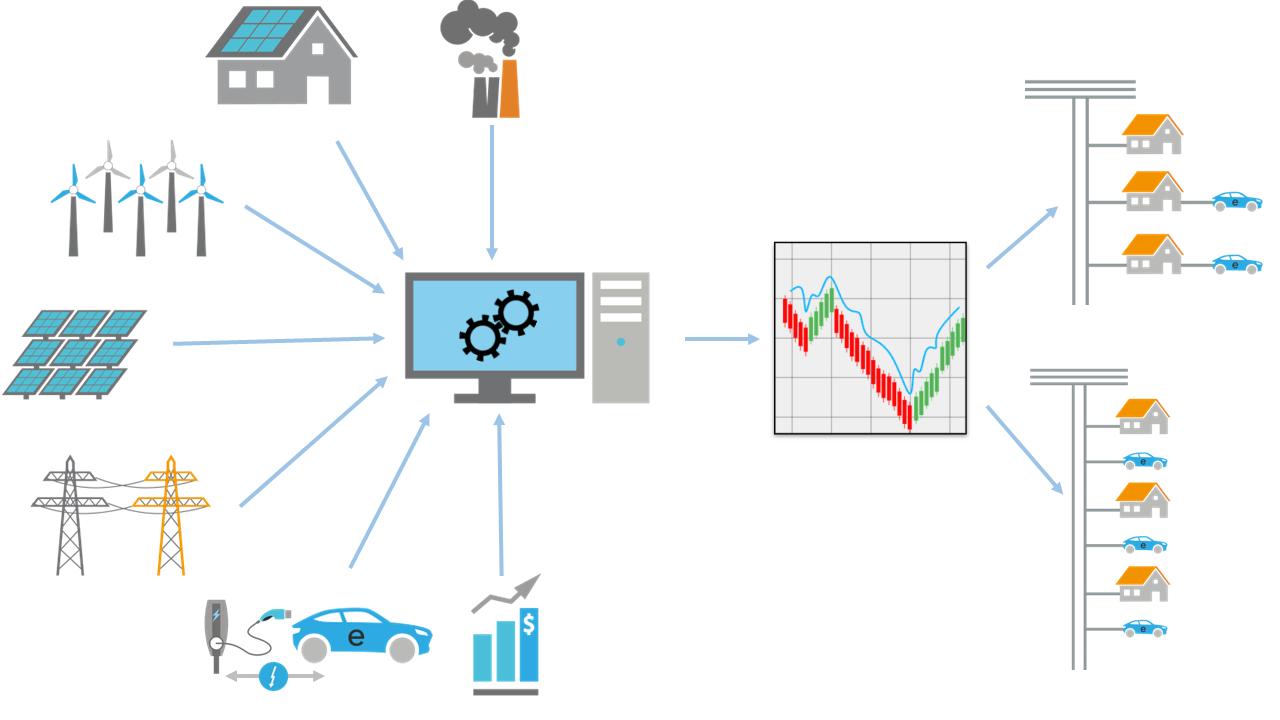Optimal strategy to deploy and manage flexibility services provided by EVs

Project description
The energy and mobility systems are undergoing massive electrification with forecasted low-emission vehicles and recharging points spiking over the next few years, supported by ambitious policies, aiming for a climate neutral EU transport and energy systems by 2050. This exponential growth presents challenges including significant increase in household electricity consumption but also brings great opportunities since Electric Vehicle (EV) smart charging, possibly connected with local Renewable Energy Sources (RES) and Energy Storage System (ESS) provides grid operators with additional flexible assets to address network needs. Since cars are parked approximately 90% of the time, this concept is particularly clear in both Smart (i.e., V1G) and Bidirectional (i.e., V2X) Charging that can provide grid services (voltage related ancillary services, reshaping the load curve, grid congestion management) based on grid operators’ needs and market opportunities, while providing local benefits via behind-the-meter (BTM) optimisation leading to maximised energy efficiency and local use of RES.
The goal of the PhD project is to develop a multi-criteria assessment model that analyses various factors such as overall system costs, CO2/pollutant emissions, system reliability, local/national grid congestion, amount of RES used to feed EVs, user benefits, and gives indications on how to manage EV charging on a large scale. A key focus is to analyse conditions in which V2X functionalities are both necessary and beneficial, and situations where simpler V1G charge control is sufficient. The project also investigates the possible levels for the optimization (e.g.: local Energy Management System (EMS) level (charging point), system-level) and how these can work together. The resulting algorithm must be customizable, so it can be used by multiple actors of the electricity market (e.g. Transmission/Distribution System Operators (TSO/DSO), Charging Point Operators (CSO), aggregators, fleet-managers).
PhD Candidate:
István Bara
Supervisor:
Gautham Ram Chandra Mouli (G.R.ChandraMouli@tudelft.nl)
Promoter:
Pavol Bauer (P.Bauer@tudelft.nl)
The research is part of the FLOW (Flexible energy systems Leveraging the Optimal integration of EVs deployment Wave) project. It is funded by the European Union under HORIZON-CL5-2021-D5-01-03: System approach to achieve optimised Smart EV Charging and V2G flexibility in mass-deployment conditions (2ZERO).